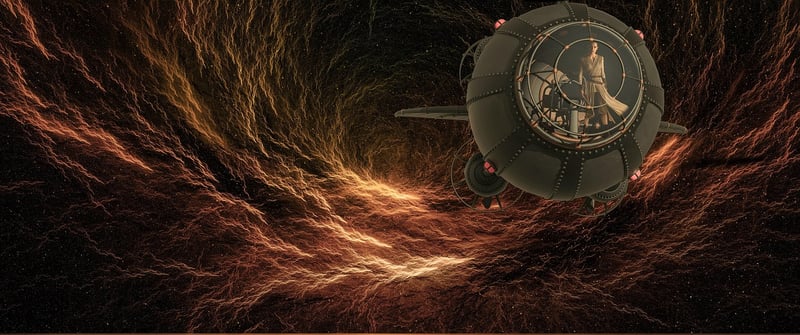Time Paradoxes
The Complexities of Time and Time Paradoxes
Time, the ever-flowing river of existence, has fascinated humanity for centuries. From the philosophical pondering of time's nature to the scientific exploration of its intricacies, the concept of time remains a profound mystery. One of the most intriguing aspects of time is the possibility of time paradoxes, which challenge our understanding of causality and the linear progression of events.
Understanding Time
Time is a fundamental component of the universe, governing the sequence of events and the direction of causality. In physics, time is often considered the fourth dimension, intertwined with space in the fabric of spacetime. The flow of time is experienced as a unidirectional progression from the past, through the present, and into the future.
Types of Time Paradoxes
Time paradoxes are situations in which the usual linear flow of time is disrupted, leading to logical contradictions. Some of the most famous time paradoxes include:
- Grandfather Paradox: If a time traveler were to go back in time and prevent their grandfather from meeting their grandmother, thus preventing their own birth, it raises the question of how the time traveler could exist to go back in time in the first place.
- Bootstrap Paradox: In this paradox, an object or information is sent back in time in such a way that it becomes trapped in an infinite cause-effect loop with no clear origin.
- Parallel Universe Paradox: The idea that time travel could lead to branching timelines or parallel universes, where changes made in the past create alternate realities.
Resolving Time Paradoxes
While time paradoxes pose intriguing thought experiments, they also challenge our understanding of the nature of time and causality. Various theories and interpretations have been proposed to resolve or explain these paradoxes, including:
- Novikov Self-Consistency Principle: Suggests that any actions taken by a time traveler in the past were already part of the timeline and cannot create inconsistencies.
- Many-Worlds Interpretation: Proposes that every possible outcome of a quantum event exists in a separate universe, avoiding paradoxes by creating new timelines for each possibility.
- Block Universe Theory: Views the past, present, and future as existing simultaneously, with all events already determined and unchangeable.
Conclusion
Time and time paradoxes continue to captivate the human imagination, inspiring countless works of fiction, scientific inquiry, and philosophical debate. While the true nature of time and the possibility of time travel remain uncertain, exploring these concepts allows us to delve into the depths of existence and contemplate the mysteries of the universe.


